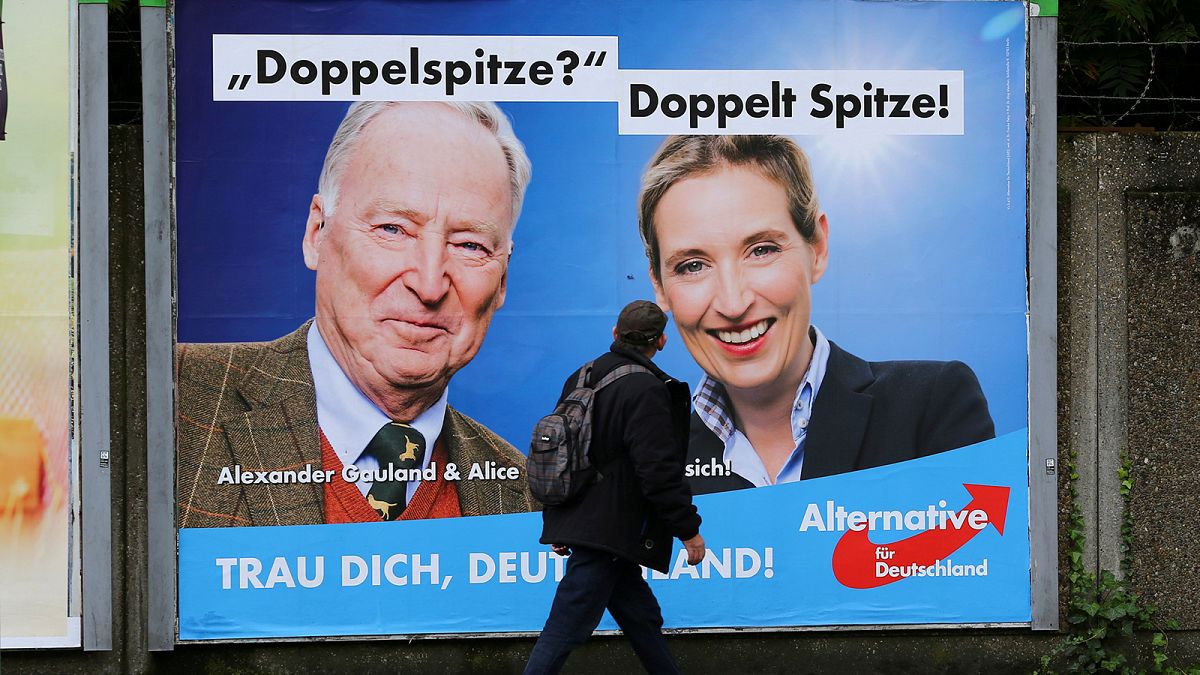The story of the party that made historic gains in Germany's 2017 election
One party is getting all the attention in Germany’s parliamentary elections: the AfD, Alternative for Germany.
They secured around 13.5 percent of the vote – making them the third-biggest party in the Bundestag.
Founded in 2013 as a eurosceptic party to the right of Angela Merkel’s Christian Democrats (CDU), the AfD won regional and European parliamentary seats before lurching even further to the right.
Not afraid of criticism
Despite the acceptable face presented by leader Alice Weidel, the party is no stranger to criticism. Its other leader, Alexander Gauland, once expressed pride in what he saw as the achievements of the Nazis during the second World War.
Back in January, Björn Höcke, head of the AfD in Thuringia, railed against Germany’s decade-long tradition of acknowledging the crimes of the National Socialist era, describing the Holocaust memorial in Berlin as a “monument of shame in the heart of the capital”.
Anti-immigration
With an election slogan of ‘Burkas: we’d prefer bikinis’, the party is demanding the immediate closure of borders, to stop what it sees as uncontrolled mass immigration.
Since the start of the refugee crisis in 2015, the party has become increasingly islamophobic. While most parties welcomed the intake of refugees, the AfD opposed it, attracting voters in the process.
According to Timo Lochocki, an expert of European politics, “the refugee problem isn’t an issue for German parties anymore, but it is for German voters. The electorate is looking for a party that deals with the issue and takes conservative concerns seriously. And there are only two parties that do that: the CSU, but it’s only in Bavaria, and the AfD, in the whole of Germany.”
General disillusionment
But the party’s success can’t be explained by the refugee crisis alone. According to some social research institutions, people’s dissatisfaction with their own personal situations also plays an important role. Many feel that politicians don’t care about them anymore, and support for the AfD continues to grow, regardless of what is happening in society, the economy and the jobs market.
Its voters fall into two categories, according to researchers: on the one hand, a mostly male lower-middle-class on a below average income; and on the other, well-educated high earners.
These very different groups are united in fear, a fear that established parties have neglected to address.
And it’s this fear that may well make the AfD the third strongest party in the German parliament after the elections.
